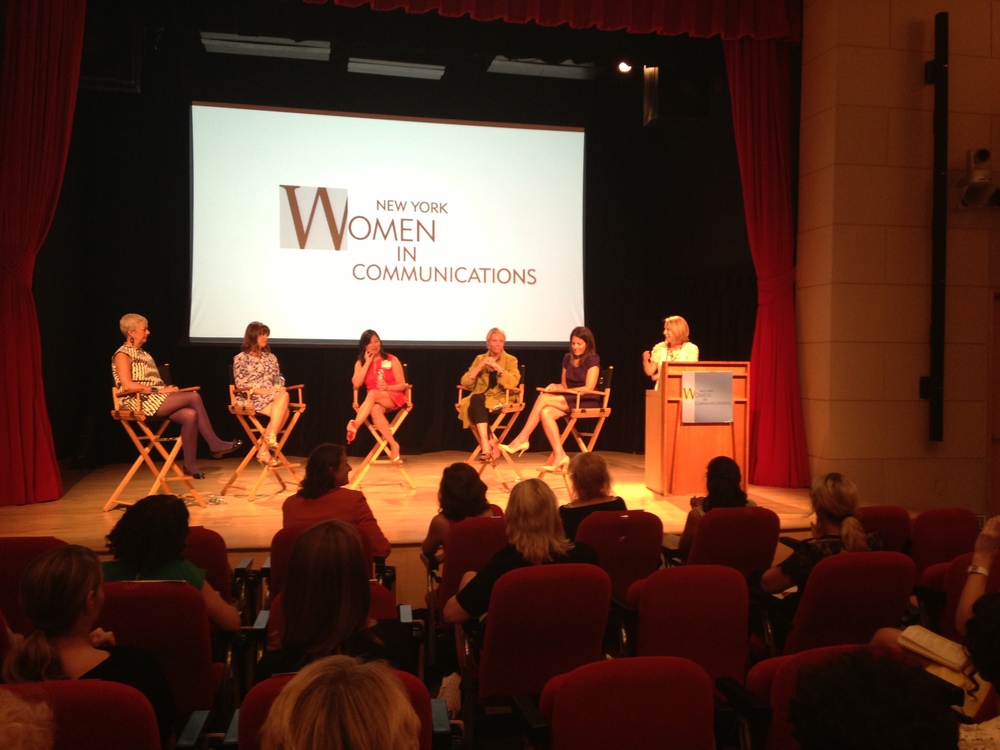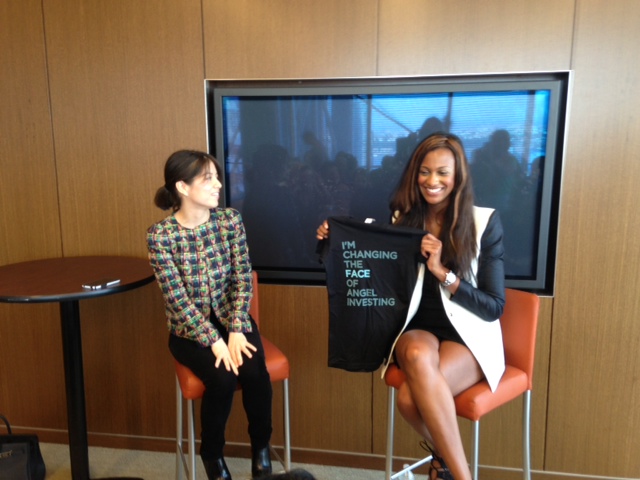Getting ahead on your own terms - and skipping the laundry
/September 10, 2013
This morning I attended a panel put on by New York Women in Communications on women in the workplace called ‘Getting Ahead on your Own Terms’. It was moderated by personal finance columnist and Today Show financial editor Jean Chatzky. The panelists (all but one wearing killer heels) were:
Cathie Black, former chairman and president of Hearst Magazines, who oversaw a slew of titles including Cosmopolitan, Jeanine Shao Collins, chief innovation officer at digital publisher Meredith 360, Dustee Tucker Jenkins, wo runs global public relations for Target, and Debra Shriver, chief communications officer at Hearst.

The panel was preceded by a quick introduction from a (female) lawyer whose name I missed, but whose firm, Davis and Gilbert, sponsored the event. Her advice? Put in the hours to succeed, network to build your career - and just accept the fact it’s exhausting - and most important, “don’t sit back and wait for your career to happen”. It won’t. That’s a mistake I made for years.
Some highlights from the panel:
Early on, the panel discussed the importance of being direct at work, something my guest and I will be talking about in the next episode of the show. They didn’t mention the fact that being direct doesn’t always go well for women, since we’re often judged on how ‘nice’ we are. I’ll get back to niceness in a minute.
Dustee Tucker Jenkins of Target mentioned the importance of encouragement. “I’ve always had people in my life who thought I could do more than I could,” she said. This is key for women, because most of us are under-confident. It’s something I wish I’d had more of myself.
Jenkins also talked about her approach when she moved from working for government to working for a huge brand, Target. She took time to learn the organization and adapt her style to theirs. She took a lot of notes during the early months because she knew she wouldn’t see the organization with ‘fresh eyes’ for that long. She said it was incredibly helpful to go back to those notes many months down the line, when she was ready to implement some changes (and not implement others she might have made at the start had she not given herself time to let everything sink in).
Cathie Black and Debra Shriver talked about how polite women tend to be and how women must make themselves heard. Black talked about how Shriver had burst into her office at Hearst one day, mad because she hadn’t been invited to a certain meeting. Black said she’d probably been left off the invite by accident and told her to go anyway. Shriver did, and, she said, ended up running the meeting. “Go where you think you should be and make a contribution,” said Black. She said too many woman sat on the corner of the table at meetings (“the dead zone”, as she put it) and didn’t say a word throughout.
“You’re not in that job to find your new best friends” became a brief topic of conversation as these senior women discussed how much pressure women are under to be nice, and how much they want to be nice at work. Chatzky admitted she suffers from this, while Cathie Black, who, after all, has run a huge company, was more pragmatic. “It’s lonely at the top,” Black said. “It’s about being respected,” rather than being loved.
“Saying no is just as important as saying yes”: this was another subject that got quite a bit of air time. As I’ve written about elsewhere, it’s something many women have a problem doing (mainly because we want to be nice), including at least one of the panelists. Jeannine Shao Collins said she’d just recently said yes to being involved in two of her kids’ schools, which, she indicated, was a crazy decision given her schedule. Again, this is something one of my next guests, Financial Times columnist Mrs. Moneypenny, will discuss on the next podcast – she’s excellent at saying no herself.
In a similar vein, Jean Chatzky said she'd recently hired a car service to shuttle her daughter around town, because trying to do that herself on top of her own work was just too time consuming. She said she’d struggled with the idea for a while before making the decision, but she doesn’t feel guilty. She feels relieved that her daughter is getting where she needs to be and she can concentrate on what she needs to get done herself.
Of course this option isn’t available to all of us, but it’s just one example of deciding when it makes financial and practical sense to outsource something you’d otherwise do yourself. Jeannine Shao Collins has three kids and a fulltime job and said she hasn’t done a load of laundry in 16 years.
Amen to that.

